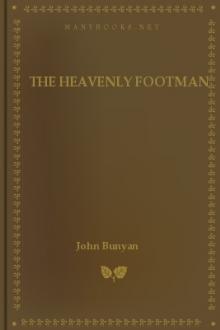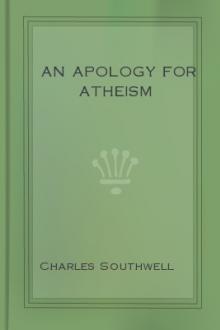Genre Religion. Page - 4

h it may be known: it is One; it is Holy; it is Catholic; it is Apostolic.
133. Q. In which Church are these marks found? A. These marks are found in the Holy Roman Catholic Church alone.
LESSON ELEVENTH ON THE SACRAMENTS IN GENERAL
136. Q. What is a Sacrament? A. A Sacrament is an outward sign instituted by Christ to give grace.
137. Q. How many Sacraments are there? A. There are seven Sacraments: Baptism, Confirmation, Holy Eucharist, Penance, Extreme Unction, Holy Orders, and Matrimony.
138. Q. Whence have the Sacraments the power of giving grace? A. The Sacraments have the power of giving grace from the merits of Jesus Christ.
147. Q. Do the Sacraments always give grace? A. The Sacraments always give grace, if we receive them with the right dispositions.
148. Q. Can we receive the Sacraments more than once? A. We can receive the Sacraments more than once, except Baptism, Confirmation, and Holy Orders.
LESSON TWELFTH ON BAPTISM
152. Q

in a Norse Saga as where they are; and if the varnish-brush of later respectability has passed over these memoirs ofthe mighty men of a wild age, here and there, it has notsucceeded in effacing, or even in seriously obscuring, theessential characteristics of the theology traditionally ascribedto their epoch.
There is nothing that I have met with in the results of Biblicalcriticism inconsistent with the conviction that these books giveus a fairly trustworthy account of Israelitic life and thoughtin the times which they cover; and, as such, apart from thegreat literary merit of many of their episodes, they possess theinterest of being, perhaps, the oldest genuine history, as apartfrom mere chronicles on the one hand and mere legends on theother, at present accessible to us.
But it is often said with exultation by writers of one party,and often admitted, more or less unwillingly, by theiropponents, that these books are untrustworthy, by reason ofbeing full of obviously unhistoric tales. And

e the way is long, (I speak metaphorically,) and there is many a dirty step, many a high hill, much work to do; a wicked heart, world, and devil to overcome. I say there are many steps to be taken by those that intend to be saved, by running, or walking, in the steps of that faith of our father Abraham. Out of Egypt thou must go through the Red Sea; thou must run a long and tedious journey, through the vast howling wilderness, before thou come to the land of promise.
4. They that will go to heaven must run for it; because, as the way is so long, so _the time in which they are to get to the end of it is very uncertain_. The time present is the only time; thou hast no more time allotted thee than that thou now enjoyest. "Boast not thyself of to-morrow, for thou knowest not what a day may bring forth." Do not say, 'I have time enough to get to heaven seven years hence;' for I tell thee, the bell may toll for thee, before seven days more be ended. When death comes, away thou must go, whether thou

assassination plot, and were as vehement of their denunciations of its authors as were the Whigs, remained staunch in their fidelity to "the king over the water," maintaining stoutly that his majesty knew nothing whatever of this foul plot, and that his cause was in no way affected by the misconduct of a few men, who happened to be among its adherents.
At Lynnwood things went on as usual. Charlie continued his studies, in a somewhat desultory way, having but small affection for books; kept up his fencing lesson diligently and learned to dance; quarrelled occasionally with his cousin Alured, spent a good deal of his time on horseback, and rode over, not unfrequently, to Rockley, choosing, as far as possible, the days and hours when he knew that Alured and his father were likely to be away. He went over partly for his own pleasure, but more in compliance with his father's wishes.
"My cousin seldom comes over, herself," the latter said. "I know, right well, that it is from no slackness of her own,

nce in a good sense or a bad. We interpret it by our antecedent impressions.
The very same sentiments, according as our jealousy is or is not awake, or our aversion stimulated, are tokens of truth or of dissimulation and pretence. There is a story of a sane person being by mistake shut up in the wards of a Lunatic Asylum, and that, when he pleaded his cause to some strangers visiting the establishment, the only remark he elicited in answer was, "How naturally he talks! you would think he was in his senses." Controversies should be decided by the reason; is it legitimate warfare to appeal to the misgivings of the public mind and to its dislikings? Any how, if my accuser is able thus to practise upon my readers, the more I succeed, the less will be my success. If I am natural, he will tell them "Ars est celare artem;" if I am convincing, he will suggest that I am an able logician; if I show warmth, I am acting the indignant innocent; if I am calm, I am thereby detected as a smooth hypocrite; if I clear u

f Nero!" thought Walden, as his eyes wandered from the thrush on the almond tree, back to the volume in his hand,--"With all our teaching and preaching, we can hardly do better. I wonder---"
Here his mind became altogether distracted from classic lore, by the appearance of a very unclassic boy, clad in a suit of brown corduroys and wearing hob-nailed boots a couple of sizes too large for him, who, coming suddenly out from a box-tree alley behind the gabled corner of the rectory, shuffled to the extreme verge of the lawn and stopped there, pulling his cap off, and treading on his own toes from left to right, and from right to left in a state of sheepish hesitancy.
"Come along,--come along! Don't stand there, Bob Keeley!" And Walden rose, placing Epictetus on the seat he vacated--"What is it?"
Bob Keeley set his hob-nailed feet on the velvety lawn with gingerly precaution, and advancing cap in hand, produced a letter, slightly grimed by his thumb and finger.
"From Sir Morton, please

Iheard a cracked voice somewhere in the ring say, 'My name isHawkyard, Mr. Verity Hawkyard, of West Bromwich.' Then the ringsplit in one place; and a yellow-faced, peak-nosed gentleman, cladall in iron-gray to his gaiters, pressed forward with a policemanand another official of some sort. He came forward close to thevessel of smoking vinegar; from which he sprinkled himselfcarefully, and me copiously.
'He had a grandfather at Birmingham, this young boy, who is justdead too,' said Mr. Hawkyard.
I turned my eyes upon the speaker, and said in a ravening manner,'Where's his houses?'
'Hah! Horrible worldliness on the edge of the grave,' said Mr.Hawkyard, casting more of the vinegar over me, as if to get mydevil out of me. 'I have undertaken a slight - a very slight -trust in behalf of this boy; quite a voluntary trust: a matter ofmere honour, if not of mere sentiment: still I have taken it uponmyself, and it shall be (O, yes, it shall be!) discharged.'
The bystanders seemed to form an

s of derision, although his majestic face and dignified manner were only calculated to excite admiration. As the shouts of laughter and yells of derision came down to his ears he raised his head and uttered a few words.
"Who is he?" asked Marcellus.
"Alexander, a teacher of the abominable Christian sect. He is so obstinate that he will not recant--"
"Hush, he is speaking."
"Romans!" said the old man, "I am a Christian. My God died for me, and I gladly lay down my life for him--"
A loud outburst of yells and execrations from the fierce mob drowned his voice. Before it was over three panthers came bounding toward him. He folded his arms, and looking up to heaven, his lips moved as if murmuring prayers. The savage beasts fell upon him as he stood, and in a few minutes he was torn in pieces.
Other wild animals were now let in. They bounded around the inclosure, they leaped against the barrier, and in their rage assailed one another. It was a hideous scene.
Into the

f his secret knowledge and commanded a high price from the hunters, who sometimes paid as much as $5 for a single song, "because you can't kill any bears or deer unless you sing them."
He was told that the only object in asking about the songs was to put them on record and preserve them, so that when he and the half dozen old men of the tribe were dead the world might be aware how much the Cherokees had known. This appeal to his professional pride proved effectual, and when he was told that a great many similar songs had been sent to Washington by medicine men of other tribes, he promptly declared that he knew as much as any of them, and that he would give all the information in his possession, so that others might be able to judge for themselves who knew most. The only conditions he made were that these secret matters should be heard by no one else but the interpreter, and should not be discussed when other Indians were present.
As soon as the other shamans learned what was going on they endeav

rights, or, what is equal, that' knowledge which would infallibly secure them. The Methodist preacher, who has the foolish effrontery to tell his congregation 'the flesh lusteth always contrary to the spirit; and, therefore, every person born into the world deserveth God's wrath and damnation,' may be a liberal politician, one well fitted to pilot his flock into the haven of true republicanism: but the author is extremely suspicious of such persons, and would not on any account place his liberty in their keeping. He has little faith in political fanaticism, especially when in alliance with the frightful doctrines enunciated from conventicle pulpits, and has no hesitation in saying that Anti-State Church Associations do not touch the root of all political evils. Their usefulness is great, because they give currency to a sound principle, but that principle, though important, is not all-important--though powerful, is not all-powerful. If universally adopted, it is questionable that any useful change of a lasting